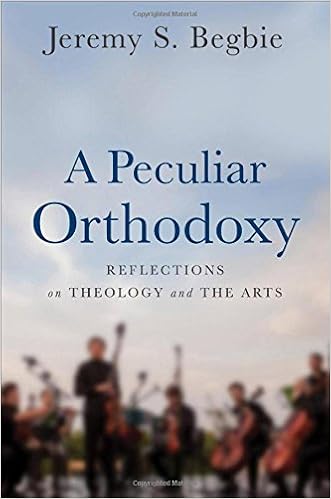The arts, as with other cultural issues, are often subject to scrutiny among Christians. From early iconoclastic debates to Zwingli’s artistic purge, Christians tend to be uncertain about the role of music and the arts in the church. Such debates are intensified by controversies over music and the so-called “worship wars.” Jeremy Begbie attempts to assuage these fears in his new book, A Peculiar Orthodoxy: Reflections on Theology and the Arts (Baker Academic, 2019). A celebrated artist and theologian, and perhaps the leading scholar in the intersection of theology and the arts, Begbie asserts that orthodox theology—particularly trinitarian theology—can be applied in peculiar ways in the arts, lending itself to a unique and beautiful expression of faith.
Begbie’s book is a series of interrelated essays, some of which focus on theological foundations, and others which apply his thesis to music. As a pianist, Begbie draws on musical case studies as opposed to visual or theatrical arts; nonetheless, his implications reach to the whole of the artistic world. His writing is very lofty and scholarly; this is not for the casual reader. But for those interested in reaching to the edges of current thought in theological aesthetics, this is the book for you. Begbie’s careful, elegant style is as imaginative and evocative as his artistic vision. This book does not merely introduce theology and the arts; it applies it to real, pressing situations in the church.
(A complimentary review copy was given in exchange for an honest review.)
Begbie’s book is a series of interrelated essays, some of which focus on theological foundations, and others which apply his thesis to music. As a pianist, Begbie draws on musical case studies as opposed to visual or theatrical arts; nonetheless, his implications reach to the whole of the artistic world. His writing is very lofty and scholarly; this is not for the casual reader. But for those interested in reaching to the edges of current thought in theological aesthetics, this is the book for you. Begbie’s careful, elegant style is as imaginative and evocative as his artistic vision. This book does not merely introduce theology and the arts; it applies it to real, pressing situations in the church.
(A complimentary review copy was given in exchange for an honest review.)

Comments
Post a Comment